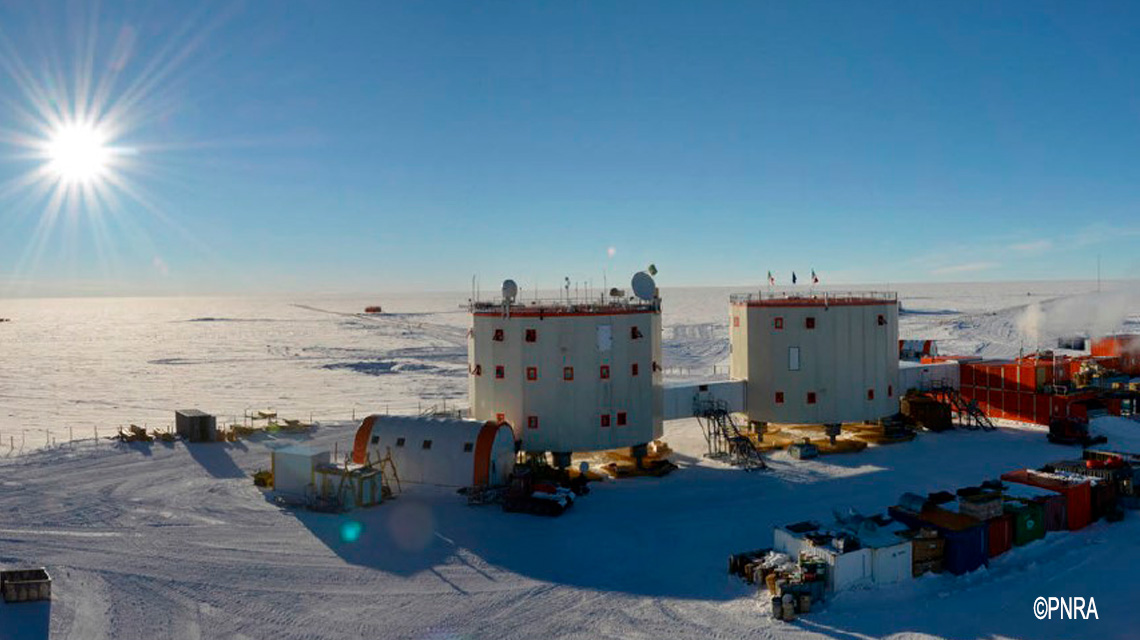Italian National Agency for New Technologies, Energy and Sustainable Economic Development

Antarctica: Concordia, the 2022-2023 summer campaign has begun
18th winterover ends for 13 crew-members who remained in isolation for nine months
The 2022-23 summer research campaign of the National Antarctic Research Program (PNRA), funded by the Ministry of University and Research (MUR) and managed by ENEA for logistics planning and by the Cnr for scientific planning, has begun at the Italian-French Antarctic base of Concordia. With the arrival of part of the technical crew, the long period of isolation ended for the winterovers who conducted research and maintenance activities at the base, which was not accessible for nine months due to external temperatures reaching -80°C. Until next February, 45 researchers - 27 Italian and 18 French - will take turns at the station, located on the eastern Antarctic Plateau at a height of over 3000 m above sea, to work on 30 projects concerning astronomy, earth sciences, atmospheric physics and chemistry, climatology and medicine. Of all the projects, 17 will be managed by the PNRA, 11 by the French Polar Institute Paul Emile Victor (IPEV) and 2 jointly. Starting next February, the 13 new winter residents of the 19th winterover - 6 Italians, 6 French and 1 German physician from the European Space Agency (ESA) - will operate the infrastructure and continue the research activities for the next 9 months, including 9 biomedical projects in collaboration with ESA.
35 technicians from the PNRA and IPEV will also be present at Concordia engaged in management activities and loading and unloading of flights carrying personnel, food and scientific tools. They will manage the operations related to the "sleepers", long convoys pulled by sledges that move fuel and heavy materials from the coast to the Concordia station.
The Concordia station will also provide support to the remote Little Dome C site, about 40 kilometers away, where the European project Beyond Epica Oldest Ice, the largest study on climate change, is underway with the aim to obtain information on Earth's climate up to 1.5 million years ago by analysing a deep ice core extracted from the Antarctic ice sheet.
"This start of the season in Concordia is strongly influenced by the very low temperatures, which remain below -45°C for most of the day, about 5°C less than in past years", explained Rocco Ascione of ENEA, station leader of Concordia. “Working outside becomes extremely difficult: even on lesser windy days the staff was exposed to a windchill[1] Low temperatures are also limiting the normal use of mechanical equipment. However, we succeded in bringing the equipment and means of transport back to the surface from their winter shelter built under the ice, where the temperature remains constantly around -50°C even during the long Antarctic winter".
